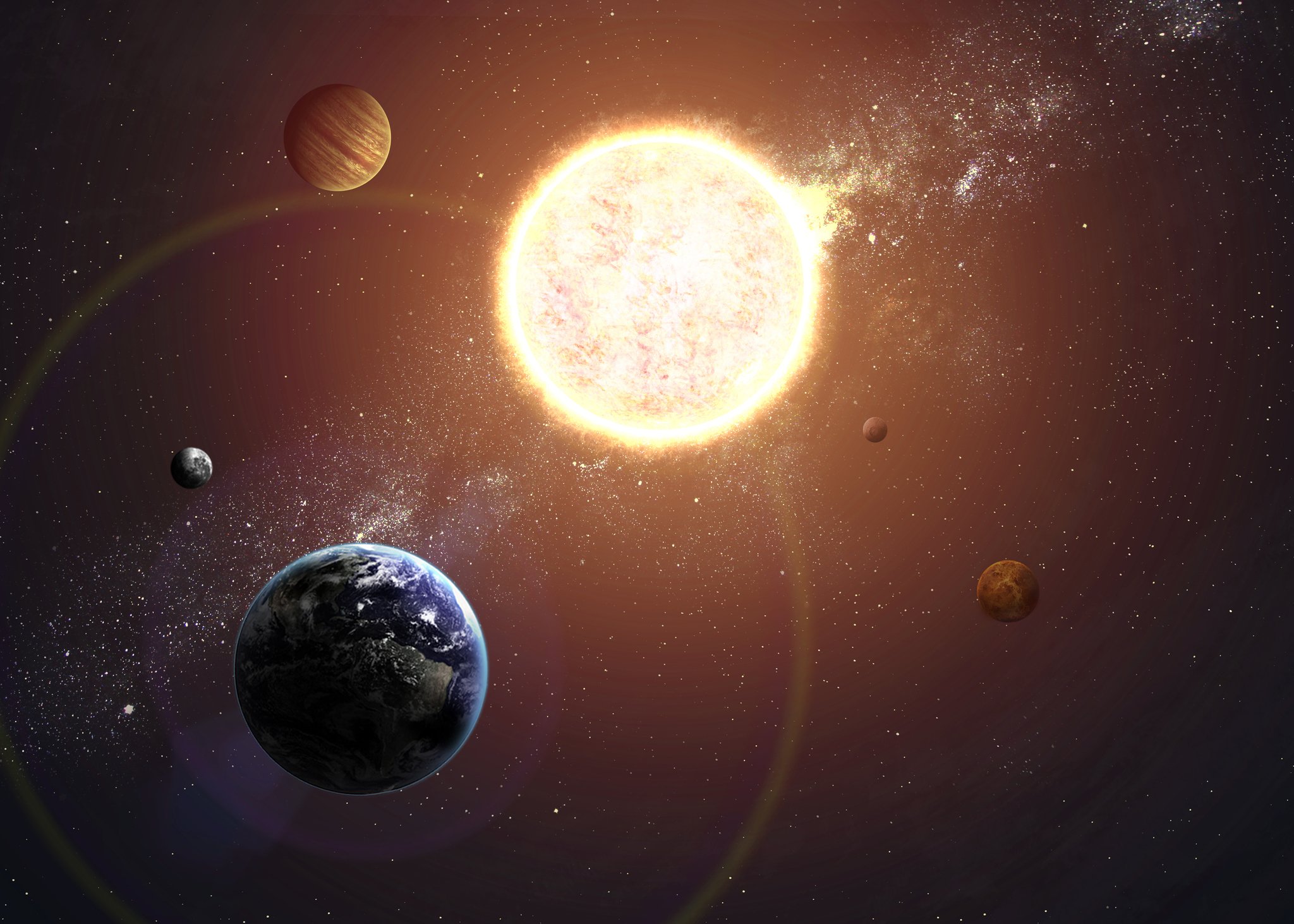Since the development of the Solar System, Earth has been located in a corner considered perfect for the development of life as we know it; After all, the Sun is at the perfect distance to illuminate the planet and not burn us alive. According to some thought experiments conducted by different scientistsThere is a small chance that Earth will leave the Solar System and become a ‘nomadic planet’.
In his short story The Wandering Earth, which has a film adaptation of the same name, author Liu Cixin depicts a hypothetical world where the Sun has died and scientists must create thrusters to take the Earth to another region of space. In the story, not only does the Sun stop working, humanity fears that a solar eruption will occur that could kill all humans living on the planet.
Obviously this is a science fiction story and there is no evidence that this could happen in the next few years. In fact, science predicts that the Sun will fade and die only after 5 billion years. In other words, it’s possible that humanity either disappeared long ago or our technology is not advanced enough. It allows us to travel to habitable planets outside the Solar System.
“This is very unlikely. Earth could be knocked out of orbit by the action of a massive interstellar object flying through interstellar space, entering the solar system and passing near our planet.. In this close encounter, known as a ‘flyby’, the Earth and the object will exchange energy and momentum and the Earth’s orbit will be disrupted. If the object was fast, large and close enough, it could launch the Earth into an orbit directed outward from the Solar System, aeronautical engineer Matteo Ceriotti of the University of Glasgow in the United Kingdom told the website. Live Science.
All science fiction aside, could Earth leave the Solar System at some point in the future? TecMundo gathered information from scientists and experts in the field to explain further on the subject.
Is the land drifting? It’s not so easy!
As thought experiments explain, Earth may slowly drift away from its orbit due to a massive interstellar object. The speed of this movement could increase significantly if this object enters the Solar System; If it passed close to Earth, the planet would be thrown out of our star system. The exchange of energy between the planet and the object will be responsible for the cosmic force that will push the Earth outward.
Although unlikely, scientists suggest it’s not exactly impossible. According to Timothy Davis, senior professor of physics at Cardiff University in the United Kingdom, The same situation can occur due to the gravitational interaction of two stars.
The United States National Aeronautics and Space Administration (NASA) explains that this could happen if the Andromeda and Milky Way galaxies collide, which could actually happen within 4.5 billion years, in both cases it would be impossible for humans to achieve this. Survive.
“If the Earth leaves the solar system, It is very likely that the vast majority of life as we know it will disappear. Almost all of the energy used by living organisms on Earth originates from the Sun, either directly (e.g., plants performing photosynthesis) or indirectly (e.g., herbivores eating plants and carnivores eating herbivores). According to this scenario, as the Earth moves away from the Sun, its temperature will decrease. Eventually he would freeze completely. Davis said the only remaining natural heat source would be the decay of radioactive elements in the Earth’s crust left over from the formation of the Solar System.
Currently, the planets are in fixed orbits around the Sun, so it is unlikely that Earth will leave the Solar System except in the cases previously mentioned. Anyway, It would take an incredibly powerful force to move our planet away from its location.Whether in the near future or billions of years from now.
So, although this scenario is not impossible, current humanity does not need to worry. Therefore, in 4 billion years, when these possibilities are approaching to become part of the reality of human civilization, we will leave the concern of this situation to humans.
Did you like the content? So don’t forget to share the article on your social networks; After all, your friends might also want to discover 15 interesting facts about the Solar System that you didn’t know.
Source: Tec Mundo
I’m Blaine Morgan, an experienced journalist and writer with over 8 years of experience in the tech industry. My expertise lies in writing about technology news and trends, covering everything from cutting-edge gadgets to emerging software developments. I’ve written for several leading publications including Gadget Onus where I am an author.












